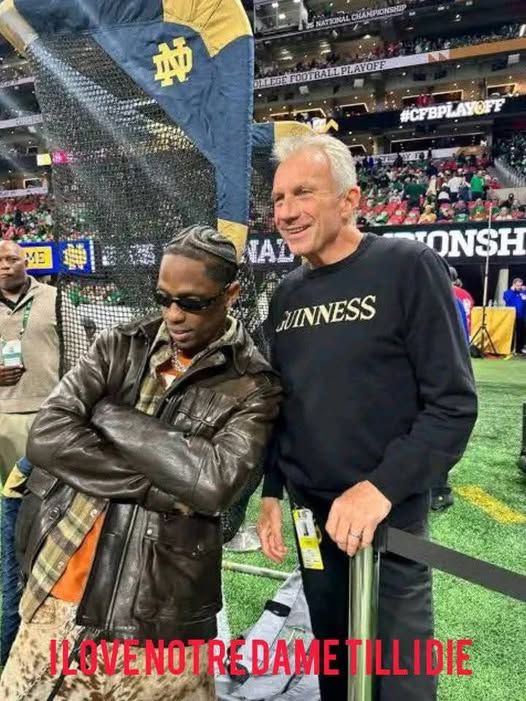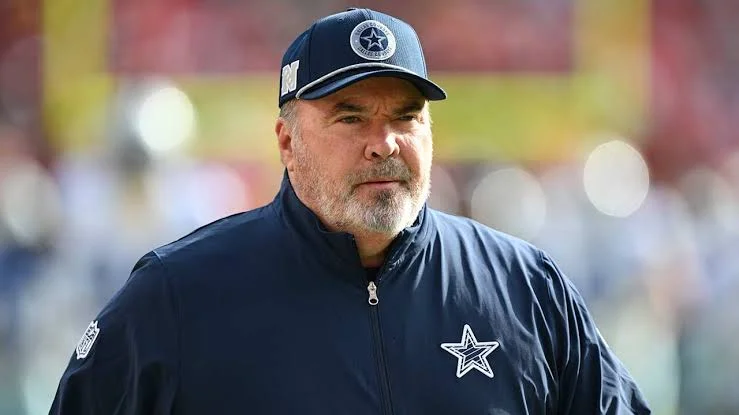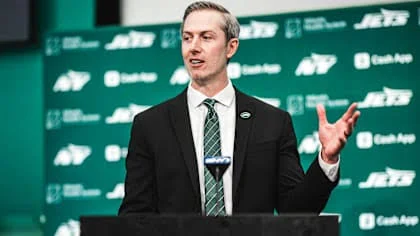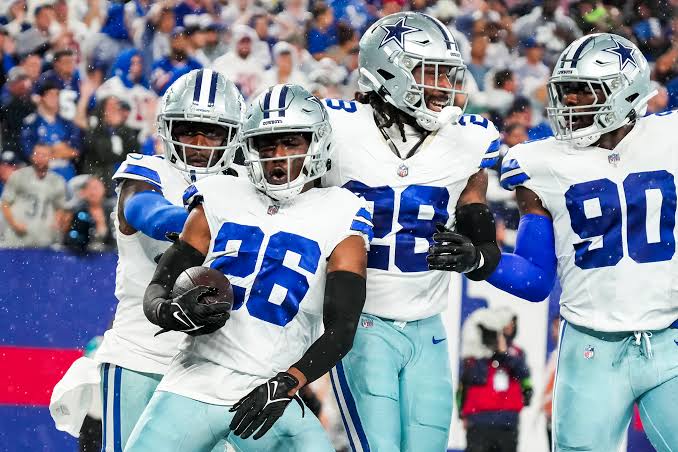Notre Dame, IN – In a move that has ignited fervent excitement among college football enthusiasts nationwide, legendary quarterback Joe Montana has returned to his alma mater, the University of Notre Dame, to serve as an official ambassador and mentor within the Fighting Irish football program. The announcement came on a sun-drenched afternoon in South Bend, where the Golden Dome shimmered as brightly as the renewed hope Montana’s presence has instilled in a proud fan base eager to recapture past glory.
Joe Montana’s return is not ceremonial or fleeting. He has committed to playing an active role within the athletic department, focused on quarterback development, team culture, alumni relations, and recruiting. His mission is simple but profound: to instill the same spirit, discipline, and championship mentality that fueled his rise from an under-the-radar recruit in Western Pennsylvania to one of the most revered names in football history.
Montana’s return to Notre Dame is a homecoming of both heart and legacy. As a quarterback for the Irish in the late 1970s, Montana authored some of the most unforgettable moments in program history. His performance in the 1979 Cotton Bowl, where he engineered a comeback victory over Houston despite suffering from hypothermia, remains etched in college football lore. That grit and resolve came to define both Montana and the Notre Dame identity. Now, with his reintroduction to the program, Notre Dame is reconnecting to that identity in a deeply meaningful way.
For head coach Marcus Freeman, the return of Montana is a monumental boost. Freeman, entering his fourth season at the helm, has made it a priority to reintegrate program legends and reconnect the current team to the program’s storied tradition. In Montana, he finds the ultimate bridge between past and present—a champion whose journey from South Bend to four Super Bowl titles can inspire generations of Irish players to come.
“Joe Montana isn’t just a Notre Dame legend—he’s a football icon,” Freeman said during the university’s press conference. “But more importantly, he’s a man who understands what it means to wear the gold helmet. His presence here isn’t about nostalgia—it’s about vision. Joe is here to help shape our future, to guide our young men, and to help return this program to the championship standard he knows so well.”
Montana, now 69, spoke with humility and enthusiasm as he addressed a sea of reporters, alumni, current players, and students gathered on campus for the announcement. While his NFL success with the San Francisco 49ers made him a household name, Montana repeatedly emphasized that his heart never left Notre Dame.
“This place made me who I am,” Montana said. “It’s where I learned how to be a teammate, how to handle pressure, how to compete, and how to lead. I owe so much of my journey to Notre Dame, and this is my chance to give back in a way that matters.”
Montana’s involvement will not be limited to ceremonial appearances or motivational speeches. According to sources within the athletic department, he will work directly with quarterbacks during offseason training camps, participate in film study sessions, and offer strategic input to the coaching staff when appropriate. Additionally, Montana will assist in fundraising and alumni engagement efforts, helping to further solidify Notre Dame’s brand nationally and internationally.
The decision to bring Montana into the program in such a dynamic capacity reflects the school’s broader commitment to excellence amid a changing college football landscape. With the transfer portal reshaping rosters and NIL deals redefining recruitment, Notre Dame is positioning itself as a destination not only steeped in tradition but guided by vision and influence. Montana’s return plays into that narrative perfectly.
Beyond football operations, Montana’s impact will also resonate with Notre Dame student-athletes across sports. Athletic Director Jack Swarbrick emphasized that Montana’s mentorship will transcend the gridiron.
“Joe’s story is one of perseverance, character, and championship pursuit,” Swarbrick said. “That message resonates beyond football. His example will be a beacon for our entire athletic community.”
Current Notre Dame quarterback Bryce Underwood, one of the top recruits in recent memory, was visibly thrilled by Montana’s return. Underwood, who idolized Montana growing up despite being born more than a decade after Montana’s final NFL snap, described the news as “surreal.”
“To have Joe Montana around, giving advice and working with us—it’s honestly a dream,” Underwood said. “His perspective, his experience, his energy—it’s going to take our QB room to the next level.”
Montana’s reappearance in South Bend has also sparked waves of reaction from the greater Notre Dame community. Social media lit up with tributes and emotional posts from fans, alumni, and former players. Notre Dame legend Tim Brown, a Heisman winner who followed Montana by a few years, expressed his support in a heartfelt message.
“Joe Montana coming back to Notre Dame is like Michael Jordan returning to the Bulls,” Brown wrote. “He is Notre Dame football. Let’s go!”
Even outside South Bend, college football circles recognized the significance of the move. Analysts noted that Montana’s stature and wisdom could give Notre Dame a distinct recruiting edge and a cultural cohesion that few programs can replicate. Montana’s authenticity, combined with his championship pedigree, makes him one of the most compelling figures in the sport’s ongoing evolution.
Beyond football, Montana’s return symbolizes the power of legacy and the enduring connection between a person and their roots. For Montana, the move is more than a professional endeavor—it’s a deeply personal mission.
“I’ve never stopped being part of the Notre Dame family,” Montana said. “But now, I get to be here every day. To walk these halls, watch these guys work, and do everything I can to help them chase greatness—that’s the privilege of a lifetime.”
Montana, who still resides part-time in California, plans to spend much of the fall and spring in South Bend, working closely with the team while balancing family commitments and business ventures. He noted that his wife, Jennifer, and their four children were fully supportive of the decision and excited to spend more time around campus.
In many ways, Montana’s return encapsulates the very essence of Notre Dame football: tradition fused with purpose, glory balanced by humility. It’s a powerful reminder that while football may evolve, some values remain timeless.
As the Fighting Irish prepare for a new season, Montana’s presence looms as both a symbol and a force. Players now walk into meetings knowing that a living legend may be sitting beside them. Young quarterbacks approach practice with the knowledge that one of the greatest to ever play the position is watching, guiding, and rooting for their success.
Montana’s legacy was already secure, both at Notre Dame and in NFL history. But this chapter gives it new life. He is no longer just a monument to greatness but an active participant in shaping the future of a program he loves. For Notre Dame, this isn’t just about having a legend in their corner. It’s about having a leader, a mentor, and a believer in what the Fighting Irish can still become.
And so, as the echoes from the Grotto blend with the chants from the locker room, one truth resonates louder than ever: Joe Montana is back at Notre Dame—not for one game, not for nostalgia, but for the next generation of champions.




